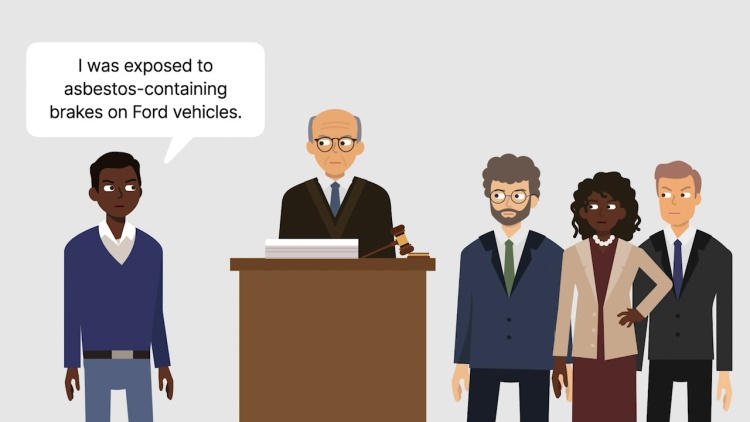Ford Motor Co. v. Boomer
Virginia Supreme Court
736 S.E.2d 724 (2013)
- Written by Craig Conway, LLM
Facts
Walter Boomer (plaintiff) filed a wrongful death suit against Ford Motor Company (Ford) and Bendix Corporation (Bendix) (defendants) on behalf of his father-in-law, James Lokey. For many years Lokey, a Virginia State Trooper, stood over mechanics using compressed air to blow out brake dust so that Lokey could perform visual inspection of vehicles’ brakes. The dust inhaled by Lokey contained asbestos, and eventually the exposure resulted in a diagnosis of mesothelioma for Lokey. Prior to his death, Lokey testified via deposition that he made visual inspections for five to six hours per day for over 10 days per month. Prior to working as a state trooper, Lokey worked as a pipefitter in a naval shipyard, where asbestos-containing products also were likely present. At trial, Boomer’s medical experts testified that the asbestos-containing brakes manufactured by Bendix, which were installed in vehicles manufactured by Ford, were a substantial, contributing factor to Lokey’s mesothelioma. Defense experts testified to the opposite conclusion. At the close of evidence, the trial judge instructed the jury on proximate cause and asked the jury to determine whether the defendants’ negligence was a “substantial contributing factor” to Lokey’s mesothelioma. The trial court overruled the defendants’ objections to the use of the instruction. The jury held for Boomer and awarded damages over $282,000. The defendants appealed.
Rule of Law
Issue
Holding and Reasoning (Millette, J.)
What to do next…
Here's why 907,000 law students have relied on our case briefs:
- Written by law professors and practitioners, not other law students. 47,100 briefs, keyed to 996 casebooks. Top-notch customer support.
- The right amount of information, includes the facts, issues, rule of law, holding and reasoning, and any concurrences and dissents.
- Access in your classes, works on your mobile and tablet. Massive library of related video lessons and high quality multiple-choice questions.
- Easy to use, uniform format for every case brief. Written in plain English, not in legalese. Our briefs summarize and simplify; they don’t just repeat the court’s language.







